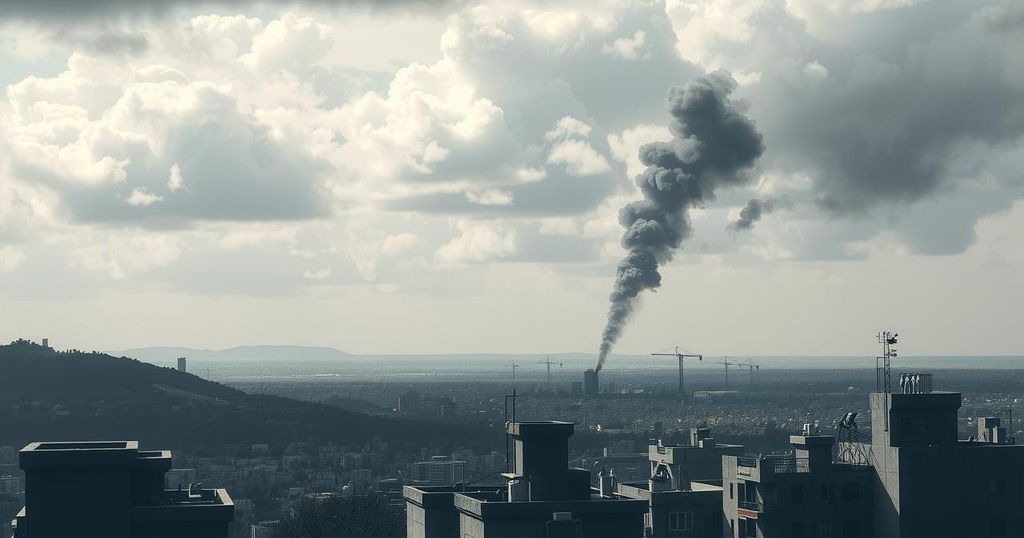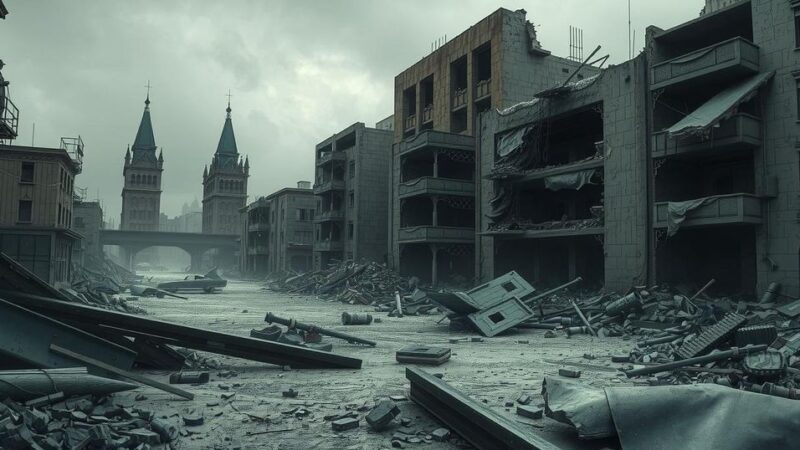Recent rocket attacks from Lebanon into northern Israel have strained the fragile ceasefire with Hezbollah. Israeli airstrikes hit Beirut for the first time post-ceasefire, raising concerns among residents. Tensions persist despite the ceasefire agreement aimed at reducing hostilities. Analysts suggest that continued aggression may lead to deteriorating conditions and further conflict between the parties involved.
Recent rocket fire from Lebanon into northern Israel has jeopardized an already fragile ceasefire between Israel and Hezbollah. Israeli airstrikes targeted the suburbs of Beirut on Friday as a response, marking the first strikes on the Lebanese capital since a ceasefire was brokered by the United States and France, which concluded hostilities in late November. This escalation has raised concerns among residents in both Beirut’s southern suburbs and northern Israeli border communities, many of whom have only recently returned home after the conflict.
The ceasefire agreement came into effect following Hezbollah’s initial rocket attacks on October 8, 2023, after a deadly offensive by Hamas against Israel. The ongoing conflict, which escalated to a full-scale war in September 2024, caused extensive casualties, particularly among Hezbollah’s leadership and civilians alike. The accord mandated the withdrawal of both Hezbollah and Israeli forces from south of the Litani River while allowing a strengthened Lebanese army and U.N. peacekeepers to monitor the area.
Though the ceasefire has managed to halt all-out warfare, it has not eliminated tensions completely. Israel has persisted with airstrikes in southern Lebanon, asserting its aim is to neutralize Hezbollah’s capabilities. The deadline for Israeli troop withdrawal has been extended after protests escalated when the troops did not comply with the original timeline. Since the ceasefire began, U.N. peacekeepers documented over 650 cross-border incidents, with a notable prevalence of Israeli activities in Lebanon, including airstrikes and troop movements. Hezbollah has engaged minimally in retaliation, with one strike recorded in December 2023.
The origin of the recent rocket attacks remains debated, with Hezbollah disavowing responsibility and attributing the action to Palestinian factions. Some analysts remain skeptical of this denial, suggesting that such operations would likely occur with Hezbollah’s approval. Observers note that this surge in violence might stem from internal pressures within Hezbollah or orchestrated provocations by other entities yet unconfirmed.
In light of the evolving situation, Israeli officials have signaled a commitment to aggressive military responses to safeguard their northern communities. Notably, Israeli Prime Minister Benjamin Netanyahu asserted that Israel would respond robustly to any perceived threats from Lebanese territory. Conversely, analysts suggest that Hezbollah might not be inclined to engage in extensive confrontations despite aggressive Israeli actions, hinting at a critical shift in the balance of deterrence in the region.
Experts warn that continued Israeli aggression could threaten the fragile ceasefire, potentially leading to an escalation of hostilities. How these recent developments will influence future relations between Israel and Hezbollah remains uncertain as both sides navigate the precarious landscape of Middle Eastern geopolitics.
The recent uptick in hostilities between Israel and Hezbollah underscores the precarious nature of the ongoing ceasefire, marked by rocket fire from Lebanon and subsequent Israeli airstrikes. With tensions heightened and responses from both parties growing increasingly aggressive, the future of the ceasefire remains uncertain. Experts caution that the current dynamics may lead to further escalations unless a more stable resolution can be reached. The balance of power and deterrence in the region could potentially shift, influencing both local and broader geopolitical landscapes.
Original Source: www.wsls.com






